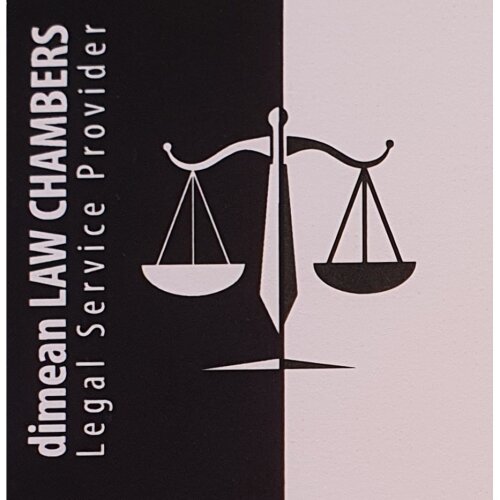Best Child Visitation Lawyers in Sri Lanka
Share your needs with us, get contacted by law firms.
Free. Takes 2 min.
Free Guide to Hiring a Family Lawyer
Or refine your search by selecting a city:
List of the best lawyers in Sri Lanka
About Child Visitation Law in Sri Lanka
In Sri Lanka, child visitation is a legal concept that typically arises during divorce or separation proceedings when parents are unable to agree on custody arrangements. The primary concern of Sri Lankan law regarding child visitation is the welfare and best interests of the child. The law allows the non-custodial parent the right to visit their children at scheduled times and in a defined manner. Decisions on visitation rights in Sri Lanka are influenced by various factors, including the age of the child, the living environment, and the psychological impact on the child.
Why You May Need a Lawyer
There are several situations where seeking legal advice regarding child visitation may be necessary. These include disputes over custody or visitation schedules, complications arising from cross-border custody issues, enforcement of visitation rights when one parent is non-compliant, and modifications to existing visitation agreements due to changes in circumstances. Legal expertise can also help in mediating between parents to arrive at mutually agreeable solutions, thus minimizing psychological trauma to the child.
Local Laws Overview
Sri Lanka's legal framework governs child visitation arrangements through its family law system, primarily under the Marriage Registration Ordinance and connected family law statutes. Courts prioritize the child's welfare above all else, and all visitation rulings reflect this principle. Joint custody is encouraged, but when it is not practical, one parent is granted primary custody while the other receives visitation rights. The Courts also approve visitation schedules and have legal measures to modify such arrangements if the child's best interests demand it.
Frequently Asked Questions
What is the primary concern of child visitation laws in Sri Lanka?
The primary concern is the welfare and best interests of the child. Courts focus on ensuring that visitation rights reflect these priorities.
Can a visitation order be modified in Sri Lanka?
Yes, visitation orders can be modified if there is a significant change in circumstances that affects the child's best interests.
How do courts decide on visitation schedules?
Courts consider various factors, including the child's age, psychological well-being, educational needs, and the parent's living conditions, before setting a visitation schedule.
Is joint custody common in Sri Lanka?
While joint custody is encouraged, it is not always feasible. In such cases, one parent receives primary custody while the other parent is granted visitation rights.
What can be done if a parent violates visitation rights?
If visitation rights are violated, the affected parent can seek legal recourse through the Sri Lankan courts to ensure compliance with the visitation order.
Do grandparents or other family members have visitation rights?
Visitation rights are typically reserved for parents, but under certain circumstances, courts may grant visitation rights to grandparents or other family members if it benefits the child.
How does relocation affect visitation rights?
If a custodial parent wishes to relocate, it can affect visitation arrangements. Such cases often require court approval to modify the visitation schedule.
Are visitation schedules flexible?
Visitation schedules are usually defined by the court but can be flexible if both parties agree and the arrangement is in the child's best interest.
Can a child refuse visitation?
While a child's preference is considered, particularly as they grow older, the ultimate decision is based on what is in their best interest, as determined by the court.
What role does mediation play in child visitation disputes?
Mediation can help resolve disputes amicably without the need for contentious court proceedings, focusing on the best interests of the child.
Additional Resources
For those seeking further assistance, the Department of Probation and Child Care Services, the Legal Aid Commission of Sri Lanka, and various child welfare NGOs offer support and resources. They provide guidance on legal proceedings, child psychology, and structured support systems for affected children and parents.
Next Steps
If you require legal assistance with child visitation, consider consulting with a family lawyer experienced in Sri Lankan law. Begin by gathering all relevant documents, including any existing court orders or agreements. A legal professional can guide you through the process, help mediate between parties, and represent you in court if necessary. Always remember that the primary aim is to secure an arrangement that best serves the welfare and interests of the child.
Lawzana helps you find the best lawyers and law firms in Sri Lanka through a curated and pre-screened list of qualified legal professionals. Our platform offers rankings and detailed profiles of attorneys and law firms, allowing you to compare based on practice areas, including Child Visitation, experience, and client feedback.
Each profile includes a description of the firm's areas of practice, client reviews, team members and partners, year of establishment, spoken languages, office locations, contact information, social media presence, and any published articles or resources. Most firms on our platform speak English and are experienced in both local and international legal matters.
Get a quote from top-rated law firms in Sri Lanka — quickly, securely, and without unnecessary hassle.
Disclaimer:
The information provided on this page is for general informational purposes only and does not constitute legal advice. While we strive to ensure the accuracy and relevance of the content, legal information may change over time, and interpretations of the law can vary. You should always consult with a qualified legal professional for advice specific to your situation.
We disclaim all liability for actions taken or not taken based on the content of this page. If you believe any information is incorrect or outdated, please contact us, and we will review and update it where appropriate.
Browse child visitation law firms by city in Sri Lanka
Refine your search by selecting a city.















